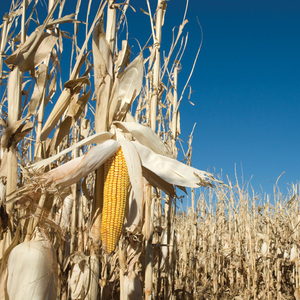ACE submits comments to USDA on climate-smart farming practices

December 27, 2022
BY American Coalition for Ethanol
The American Coalition for Ethanol submitted feedback to the USDA’s Natural Resource Conservation Service request for public input on implementation of funding in the Inflation Reduction Act for key NRCS conservation programs to spur farmer adoption of climate-smart practices. ACE CEO Brian Jennings and Jonathon Lehman, founder of the consulting group Cultivating Conservation, provided comments to NRCS, detailing key learnings from ACE’s South Dakota-based Regional Conservation Partnership Program (RCPP) project currently underway and how it’s poised to broaden its reach geographically to help achieve Congressional directives for the IRA funding.
ACE and its project partners are currently implementing the Expanding Soil Health Through Carbon Markets Alternative Funding Arrangement (AFA) RCPP in South Dakota to spur farmer adoption of climate-smart practices, to quantify the resulting carbon sequestration and greenhouse gas (GHG) benefits, and to help farmers monetize these gains in existing carbon markets to ensure the durability of climate-smart practice application.
“Using NRCS resources to unlock access to lucrative carbon markets is the ultimate way to maximize improvement in nitrogen losses, and the reduction, capture, avoidance, or sequestration of carbon dioxide, methane, or nitrous oxide emissions, associated with agricultural production,” the comments state.
Advertisement
Utilizing experience from working with NRCS for over the past year on the RCPP project, ACE’s comments describe how NRCS can effectively implement this new IRA funding to ensure robust farmer adoption of climate-smart practices, while also positioning farmers to maximize returns in climate markets for the carbon sequestration and GHG benefits these practices provide. Below are some key points:
•Since there is a significant need for localized quantification and verification of carbon sequestration and carbon dioxide, methane and nitrous oxide emission reductions resulting from climate-smart practices, the $300 million in Conservation Technical Assistance can be a critical piece for the rigorous data collection, analysis and modeling that is necessary, and the effort must be coordinated across a multi-state geographic region that captures diversity of soil type, precipitation and temperature variables.
•NRCS should ensure that any participation by the private sector and private philanthropy result in non-proprietary, generally available quantification and verification protocols to maximize benefits to farmers.
•The goal of the IRA funding should be to incentivize sufficient farmer participation at scale within the necessary geographical diverse footprint to secure the data necessary to improve the robustness of the existing agroecosystem models so that on-farm practices can qualify for lucrative low carbon fuel markets. This will create the critical market-based economic incentive for farmers to universally adopt climate smart practices in their operations that will lead to significant and sustainable climate benefits.
Advertisement
Building on the existing RCPP, ACE and Cultivating have recruited a trans-disciplinary team to expand upon the successful RCPP project using IRA resources. This expanded project would greatly speed NRCS’ implementation of IRA directives and has bipartisan Congressional support.
The full comments can be accessed here.
Related Stories
CountryMark on July 22 celebrated the completion of more than $100 million in upgrades at its refinery in Indiana, including those related to soybean oil storage. The facility produces renewable diesel via coprocessing technology.
ATOBA Energy and Air Moana are partnering to implement scalable solutions for the supply of SAF. The collaboration aims to ensure long-term SAF availability while supporting local initiatives to develop sustainable fuel production in Tahiti.
While final IRS guidance is still pending, the foundation of the 45Z program is well defined. Clean fuel producers should no longer be waiting; they can now move forward with critical planning and preparation, according to EcoEngineers.
Neste Corp. on July 24 released second quarter results, reporting record quarterly renewable product sales volumes despite weaker margins. SAF sales were up nearly 80% when compared to the first quarter of 2025.
Valero Energy Corp. on July 24 released second quarter results, reporting a profitable three-month period for its ethanol segment. The renewable diesel segment posted a loss, but the company’s new sustainable aviation fuel (SAF) unit operated well.
Upcoming Events










